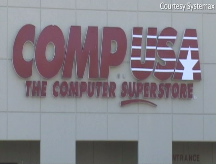Investors shop for good deals on stores
Unlike their last buying binge of retailers, experts say private equity firms are less likely to scoop up just any merchant.
NEW YORK (CNNMoney.com) -- There's hope yet for a bailout for battered merchants, but it's not coming from Washington.
Some private equity investors are mining the distressed retail landscape for hot prospects, and they're taking their cues from where Americans are still shopping.
"This is a fantastic time to invest in retailing, if you know what you're doing," said Love Goel, chairman and CEO of Growth Ventures Group, a private equity firm that focuses on the retail industry.
That caveat from Goel is especially relevant given that some of biggest retail failures over the past year - marked by bankruptcies and subsequent liquidation - involved private-equity owned store chains.
Among them were Linens 'N Things, Steve & Barry's, Mervyn's, Goody's and now, possibly, Fortunoff.
But Goel isn't turned off by this trend.
"Many of the major retailers that [have] gone bankrupt are owned by private equity firms," he said. "These outcomes will coerce retail boards to seriously ponder issues of ownership, governance and strategy."
"On the other hand, there are private equity owned retailers who are doing well," he added. "Vitamin Shoppe is one example."
But those examples are harder to find in a recession that's devastated retailers across the board.
"Retail is in trouble. But there are good companies that need money and have a compelling reason to exist," Goel said. "From a private equity perspective, we can find wonderful companies at attractive prices."
According to Preqin Ltd., a London-based research firm that tracks private equity fund-raising globally, retail was the 8th biggest sector globally for private equity buyout deals in 2008.
A total of 91 retail deals with an aggregate value of $9.1 billion were inked last year. In 2009, the firm estimates that total private equity capital available in the U.S. will total about $262 billion.
Given the steep sales slump, private equity investment in retailing probably won't be as big this year versus prior years but it's still in focus, said Tim Freidman, head of publications with Prequin.
So what makes retailing attractive for private investors? There are three key factors, according to Mike Moriarty, partner with A.T. Kearney.
First, retailers typically generate cash. When credit availability is tough, cash flow is important to pay down debt to finance a buyout, he said.
"Retail throws off a lot of cash once you get it to a healthy state," said Mathew Katz, managing director with AlixPartners, a corporate turnaround and restructuring advisory firm. "But in bad times, this can become very difficult."
Secondly, retailers' real estate can be monetized. "From a cash flow perspective, for any PE fund, this is a recipe for happiness," Moriarty said.
And third, retail is a relatively "low risk" industry for private equity, Moriarty said. "Retailing is never going to go away completely. It's pretty stable compared to other industries because people have to buy stuff," he said.
"Even though 2009 may be very tough, if history is any guide, it is unlikely to deviate much from the norm. We will still have a $3 trillion retail sector," said Goel.
Both Moriarty and Goel said that any successful retail deal done in 2009 by private investors has to be "strategic" rather than financial in nature.
If it's just a financial play, then "PE money won't help a struggling retailer become better but it will help it go out of business," said Moriarty, citing the string of recent failures.
"In this [retailing] environment, private equity works best when it can have influence over a company that needs change but [the company] is already in the right product and market segment," he said. What's missing is "a need to restructure and rethink the business," he said.
For his part, Goel said he's evaluating retail targets based on demographic trends.
"Ethnic shoppers, baby boomers, and pursuit of health and wellness will define shopping trends over the next decade," said Goel.
Using this blueprint, he looked for merchants who are "winners" in their category in terms of sales, the quality of the management and finally the balance sheet.
After examining 50 retailers, Goel said he didn't find anything attractive last year and didn't do any deals.
However, he already has 12 deals on his "deal sheet" since last month. One is in the sporting goods sector, another in specialty apparel, he said. "They are $100 million to $200 million companies and they both are making products for a growing demographic," he said.
Cabela's (CAB), Zale's (ZLC) and Bed, Bath and Beyond (BBBY, Fortune 500) are examples of other retailers that Goel thinks are attractive names for private equity investment "if they can be bought at a reasonable price."
However, Goel said the real opportunities for private investors right now "are in the middle market with privately held and, in some cases, divisions of publicly traded retailers."
"There is renewed interest in retailing and opportunities are there," said Michael Apple, managing director of Quest Turnaround Advisors. "But the question is which companies will survive and what is it going to take to get them to a healthy state when the economy improves." ![]()


